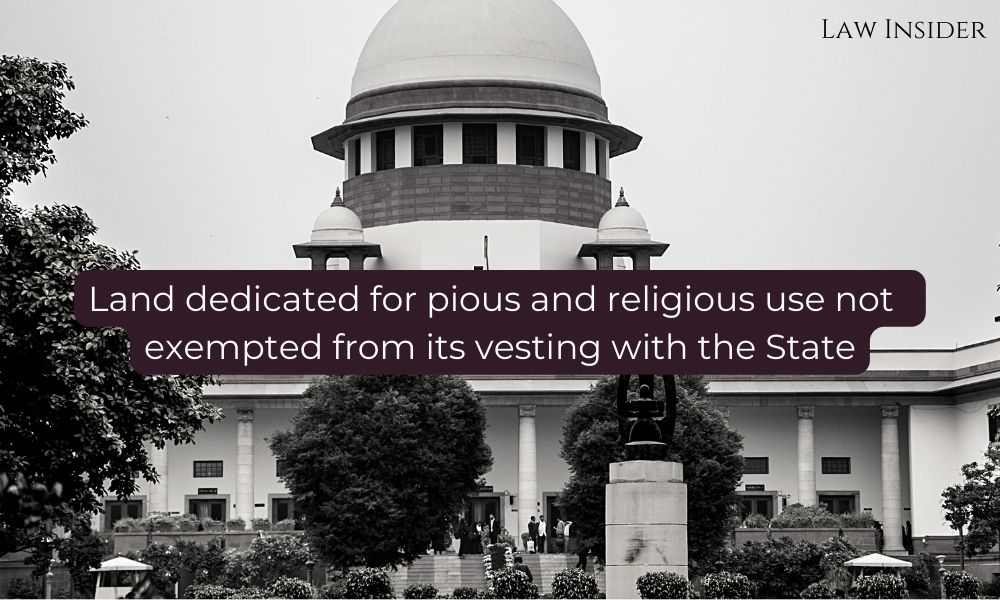Munmun Kaur
Published on: February 08, 2022 at 13:41 IST
The Supreme Court on February 07, held that a Wakf Board is “State” within the meaning of Article 12 of the Constitution and thus remains open to challenge under Writ jurisdiction.
The observation was based on a Judgment of a Constitution Bench of the Supreme Court in Rajasthan State Electricity Board, Jaipur v. Mohan Lal & Ors, whereby it was observed that the expression “Other authorities” in Article 12 will include all Constitutional or statutory authorities on whom powers are conferred by Law.
A Bench of Justices Hemant Gupta and V Ramasubramanian hearing the present matter also held that the land dedicated for pious and religious purposes is not immune from its vesting with the State.
The decision came in an Appeal filed by the Andhra Pradesh Government (now Telangana Government) against the April 2012 ruling by the Andhra Pradesh High Court deciding in favour of the Wakf Board.
The facts of the Case were that a notification was issued in the year 2006 on behalf of the Waqf board declaring 1654 acres and 32 guntas as Wakf property. The notice was challenged by the State of Andhra Pradesh (now Telangana) and the Andhra Pradesh (now Telangana) Infrastructure Development Corporation by filing a Writ Petition before the High Court.
However, in 2012, the High Court decided in the favour of the Wakf Board saying that whatever properties are treated as Wakf cannot be reversed and dismissed the Petition. Hence, the present Appeal was filed in the Apex Court.
The Apex Court was dealing with the issue of whether the land was Wakf land as per a notification released by the Wakf Board on March 13, 2006.
The Court held that the State Government was right in invoking the Writ jurisdiction against the State and the High Court erred in Law to relegate the parties to the statutory remedy because the State Government, as a juristic entity, has a right to protect its property through Writ Jurisdiction, just as any individual could have invoked the jurisdiction of the High Court.
The Apex Court also observed that the land in question stood as Jagir but post-independence the State had abolished Jagirs and the land came to vest with the State.
The Bench said
“Admittedly, the Government is reflected as the owner of the land in question since the year 1912-13. The Government has exercised its rights of ownership as a successor of the Sovereign. Consequent to Abolition Regulation and payment of commutation under the Commutation Regulation, the State Government had transferred land to the Corporation… Therefore, the abolition of jagir by the Abolition Regulation was absolute.”
In answer to the contention that ‘Once a wakf, always a wakf’, the Division Bench referred to Khajamian Wakf Estates v. State of Madras, (1970) 3 SCC 894, where it was observed that provisions like Article 26 do not take away the right of the State to acquire property belonging to religious denominations. Those denominations can own, acquire properties and administer them in accordance with Law but that does not mean that the property owned by them cannot be acquired. As a result of an acquisition, they cease to own that property.
The Apex Court’s decision in the present Case, came as a huge relief to the Telangana Government as the State had subsequently leased out the land for setting up a university, township, and other institutions of repute.

